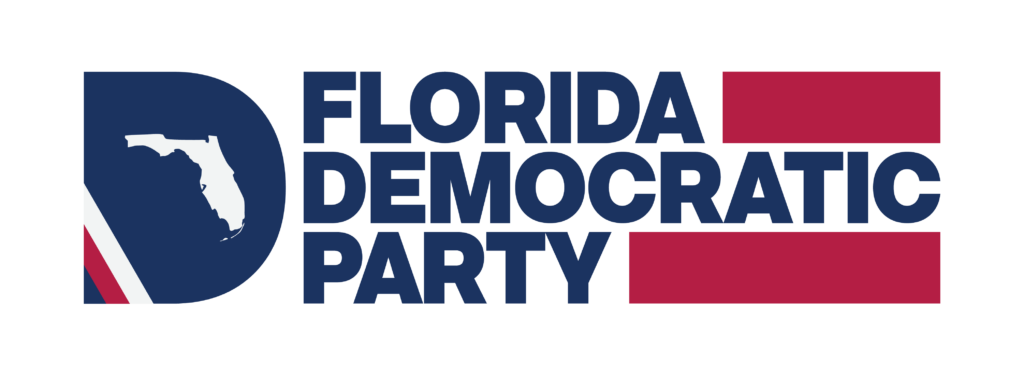Students and Families Will Pay More Because Congressman Southerland Voted to Spike the Cost of College
Congressman Southerland said he’d change Washington – but Florida students and their families know that all Congressman Southerland has done is gone Washington.
In just weeks, loan rates for Florida students will spike because Congressman Steve Southerland voted to make students pay more. And with north Florida students already struggling with debt and loans, Congressman Southerland’s vote to make college more expensive and less accessible shows once again that Congressman Southerland can’t be trusted to look out for Florida’s middle class families in Washington.
“The clock is ticking: is just a few short weeks student loan rates will spike because Congressman Southerland voted to make students and our families pay more for school,” said Elana McGovern, President of the FSU College Democrats and President of the Florida College Democrats. “Congressman Southerland said he’d change Washington – but when Congressman Southerland votes to make students pay more for college it shows students in north Florida that Congressman Southerland has become part of the problem in Washington. And when Congressman Southerland say one thing here in Florida, and then does the opposite in Washington, it’s impossible for Florida students and our families to trust Congressman Southerland to look out for us.”
Yesterday, Mikaela Mendoza, President of the UCF College Democrats, issued this statement condemning Congressman Dan Webster and Rick Scott for increasing the cost of college for Central Florida students.
###
BACKGROUND:
Congressman Southerland Voted to Raise Student Loan Interest Rates Up to 8.5 Percent. [H.R. 1911, Vote #183, 5/23/13]
AP: House Republican Plan Would Raise Student Loan Interest Rates Up to 8.5 Percent. According to the Associated Press: “Under the GOP proposal, student loans would be reset every year and based on 10-year Treasury notes, plus an added percentage. For instance, students who receive subsidized or unsubsidized Stafford student loans would pay the Treasury rate, plus 2.5 percentage points. Using Congressional Budget Office projections, that would translate to a 5 percent interest rate on Stafford loans in 2014, but the rate would climb to 7.7 percent for loans in 2023. Stafford loan rates would be capped at 8.5 percent, while loans for parents and graduate students would have a 10.5 percent ceiling under the GOP proposal.” [Associated Press, 5/16/13]
Under the “Students Pay More” Act, Graduates Would Pay Almost $5,000 More in Student Loan Interest. The Associated Press reported: “In real dollars, the GOP plan would cost students and families heavily, according to the nonpartisan Congressional Research Service. The office used the CBO projections for Treasury notes’ interest rates each year. Students who max out their subsidized Stafford loans over four years would pay $8,331 in interest payments under the Republican bill, and $3,450 if rates were kept at 3.4 percent. If rates were allowed to double in July, that amount would be $7,284 over the typical 10-year window to repay the maximum $19,000.” If the Republican plan were implemented, college graduates would pay $4,881 more in interest, compared to the current rate. [Associated Press, 5/16/13]
Over 50 Percent of Florida College Students Have Loan Debt. The Project on Student Debt reported that 51 percent of Florida College students have loan debt, with an average of $23,054 per borrower. [Project on Student Debt, accessed 5/21/13]
Florida Republican Congressmen Voted to Slash Pell Grant Eligibility and Freeze Pell Grant Funding. In March 2013, Florida Republican Congressmen voted for the House Republican budget. Inside Higher Ed reported, “The budget also calls for reversing changes to the grant’s needs analysis formula put into place in 2007, which expanded the number of students eligible for Pell Grants, in essence making fewer students eligible to receive them.” In addition, Campus Progress found: “Under the House Republican Budget, Pell Grants would be capped at the current level of $5,645 for 10 years, and eliminate all mandatory funding. In other words, under Ryan’s plan, Pell Grants would not keep up with the pace of inflation and rising tuition costs, and would be worth less each successive year.” [Inside Higher Ed, 3/13/13; Campus Progress, 3/12/13; H Con Res 25, Vote #88, 3/21/13]
Congressman Southerland Said He Would Eliminate the Department of Education. “I think departments like the Department of Education, Department of Energy, the EPA, I think those are things that right now we can’t afford. And in business, if we can’t afford it, we don’t buy it. There’s a lot of money being spent in Washington D.C. that we could eliminate if we cut, and those are some of the departments I would cut right there […] I believe that our education system in many ways is incompetent. The federal government is in charge of it. It needs to be pushed back to the states, and to the counties, and to the local communities.” [Suwannee County REC Candidate Forum, 6/08/10]




